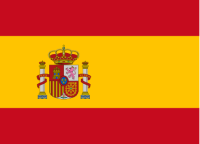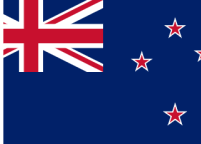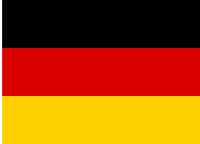Australia and New Zealand are popular immigration destinations in Oceania, and they are known for their welcoming approach to newcomers. In New Zealand, about 29% of the population, or 1.4 million people, are immigrants out of a total of 5 million residents. Australia, with a population of 26.6 million, has around 8.2 million residents born abroad.
Both countries have significant immigrant communities, especially from India, China, and the Philippines. Key industries for international professionals include IT, healthcare, construction, and dairy. Recently, New Zealand added secondary teachers to its Green List to address its high demand for educators.
2023 Employment by Industry in New Zealand
- Construction: 287,652 workers (10.5%)
- Health Care and Social Assistance: 282,925 workers (10.3%)
- Professional, Scientific and Technical Services: 273,323 workers (9.9%)
- Manufacturing: 251,850 workers (9.2%)
- Retail Trade: 242,578 workers (8.8%)
- Education and Training: 204,182 workers (7.4%)
- Accommodation and Food Services: 174,499 workers (6.3%)
- Public Administration and Safety: 149,871 workers (5.4%)
- Agriculture, Forestry, and Fishing: 145,796 workers (5.3%)
- Administrative and Support Services: 134,493 workers (4.9%)
- Wholesale Trade: 130,264 workers (4.7%)
- Transport, Postal and Warehousing: 108,862 workers (4.0%)
- Other Services: 108,642 workers (4.0%)
- Financial and Insurance Services: 75,060 workers (2.7%)
- Rental, Hiring and Real Estate Services: 65,009 workers (2.4%)
- Information Media and Telecommunications: 42,050 workers (1.5%)

Employment by Industry in Australia
- Health Care and Social Assistance: 2,256,500 workers (15.6%)
- Retail Trade: 1,335,400 workers (9.3%)
- Construction: 1,334,600 workers (9.3%)
- Professional, Scientific and Technical Services: 1,329,200 workers (9.2%)
- Education and Training: 1,229,200 workers (8.5%)
- Public Administration and Safety: 969,400 workers (6.7%)
- Accommodation and Food Services: 957,900 workers (6.6%)
- Manufacturing: 898,400 workers (6.2%)
- Transport, Postal and Warehousing: 721,900 workers (5.0%)
- Financial and Insurance Services: 534,200 workers (3.7%)
- Other Services: 526,000 workers (3.6%)
- Administrative and Support Services: 436,800 workers (3.0%)
- Wholesale Trade: 380,700 workers (2.6%)
- Agriculture, Forestry, and Fishing: 318,800 workers (2.2%)
- Mining: 300,700 workers (2.1%)
- Arts and Recreation Services: 274,300 workers (1.9%)
- Rental, Hiring and Real Estate Services: 239,100 workers (1.7%)
- Information Media and Telecommunications: 187,300 workers (1.3%)
Wages in Australia and New Zealand
- In Australia:
- Minimum wage: AUD 24.10 per hour (USD 15.90), which is significantly higher than the U.S. minimum wage of USD 7.25.
- Median hourly wage: AUD 46.62 (USD 30.75).
- In New Zealand (as of April 1, 2024):
- Minimum wage: NZD 23.15 per hour (USD 13.73) for all employees (except children).
- Median hourly wage: NZD 33.56 (USD 19.90) as of June 2024.
Steps to Secure Employment in Australia and New Zealand
- Complete a Level 7 or higher qualification, especially in high-demand fields, to be eligible for a post-study work visa.
- Apply for roles in demand and secure a job offer.
- If needed, obtain occupational registration (e.g., for healthcare or teaching).
- Gain employment with an employer based in Australia or New Zealand.
- Apply for the appropriate work visa: in New Zealand, the primary long-term work visa is the Accredited Employer Work Visa; in Australia, it’s the Temporary Skill Shortage (TSS) visa, subclass 482. For guidance on the right visa based on your profession, consider consulting an immigration adviser.
For those interested in moving to Australia or New Zealand for education or other visas, reaching out to an international education adviser or a licensed immigration consultant can be very helpful.
Reference
https://www.jobsandskills.gov.au/















